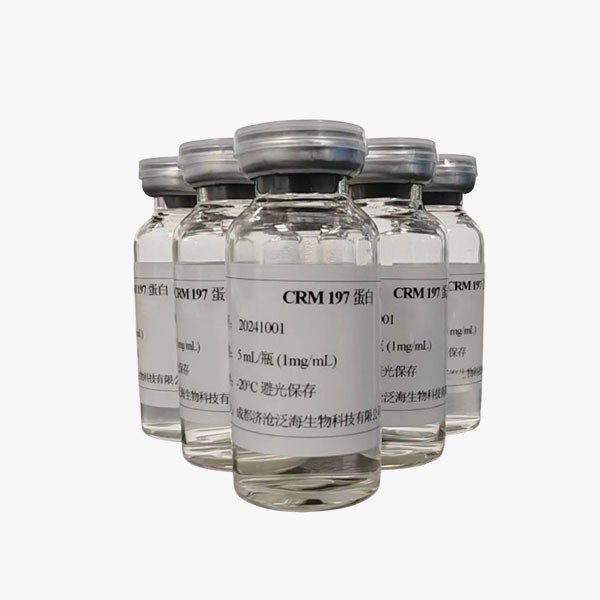- This topic is empty.
-
AuthorPosts
-
2025-10-31 at 10:47 am #5526
In the pursuit of more effective and safer vaccines, the field of immunology has undergone a remarkable transformation. Traditional adjuvants—such as aluminum salts and emulsions—have long been used to boost immune responses, but the growing demand for precision, safety, and targeted immunity has driven innovation toward molecularly engineered solutions.
At the forefront of this advancement is the recombinant protein adjuvant, a next-generation technology reshaping how vaccines and therapeutic biologics are developed.

GC Biotech, a pioneer in biopharmaceutical innovation, has been instrumental in advancing the development, optimization, and large-scale production of recombinant protein adjuvants that are designed to enhance immune activation while minimizing side effects.
1. What Is a Recombinant Protein Adjuvant
A recombinant protein adjuvant is a biologically engineered molecule or protein fragment that enhances the immune response to an antigen. Unlike conventional adjuvants, which rely on physical irritation or depot effects, recombinant adjuvants act through precise molecular signaling pathways—stimulating dendritic cells, activating toll-like receptors (TLRs), and promoting antigen presentation with exceptional specificity.
These adjuvants can be tailored to elicit cell-mediated immunity (Th1) or humoral immunity (Th2), depending on the vaccine design. This flexibility allows for customized immunomodulation in vaccines for infectious diseases, cancer immunotherapy, and even allergy desensitization therapies.
2. Engineering and Design: The GC Biotech Approach
At GC Biotech, the development of recombinant protein adjuvants begins at the molecular level. Using recombinant DNA technology, the company designs protein constructs that mimic natural immune modulators such as cytokines, chemokines, or pathogen-associated proteins.
Each protein is expressed in a controlled expression system—typically E. coli, yeast, or mammalian cells—and then purified through multi-step chromatographic methods to ensure high purity, correct folding, and biological activity.
The company’s bioprocess optimization platform integrates analytical quality control with scalable production, ensuring that the same immunostimulatory properties observed during preclinical testing can be consistently replicated in large-scale manufacturing.
3. Mechanisms of Action: Precision Meets Immunity
Recombinant protein adjuvants function by amplifying antigen recognition and immune memory formation. Through specific receptor-ligand interactions, they enhance the recruitment of antigen-presenting cells (APCs) and improve antigen uptake efficiency.
For example, a recombinant TLR agonist protein can activate innate immune pathways that instruct adaptive immune cells to generate stronger and longer-lasting protection. Similarly, recombinant fusion proteins can combine antigenic and adjuvant properties in one molecule, streamlining vaccine formulations.
GC Biotech continues to explore novel adjuvant architectures that achieve high potency with reduced reactogenicity, addressing the balance between efficacy and safety—a major challenge in modern vaccinology.
4. Applications in Next-Generation Vaccine Development
The applications of recombinant protein adjuvants span across a wide range of biomedical fields:
-
Infectious Diseases: Enhancing vaccine efficacy against viruses such as influenza, SARS-CoV-2, and RSV.
-
Cancer Immunotherapy: Stimulating tumor-specific T-cell activation and immune checkpoint modulation.
-
Autoimmune and Allergy Treatments: Regulating immune tolerance through controlled antigen presentation.
-
Therapeutic Vaccines: Supporting long-term immunological memory in chronic disease management.
At GC Biotech, these applications are not theoretical—they form the foundation of ongoing R&D collaborations with global research institutions and biotech partners. The company’s adjuvant platform supports both vaccine formulation and immunotherapy design, bridging fundamental research and clinical translation.
5. Safety, Efficacy, and Regulatory Considerations
Safety is paramount in adjuvant development. Recombinant protein adjuvants offer a distinct advantage due to their defined molecular composition and reproducible quality profile. Unlike mineral-based or emulsion-based adjuvants, recombinant systems reduce the risk of unpredictable immune reactions and batch variability.
GC Biotech adheres to international GMP standards and employs extensive toxicological and immunogenicity assessments during product validation. This ensures that each adjuvant candidate meets both regulatory expectations and clinical performance benchmarks.
Through collaborations with pharmaceutical developers and vaccine manufacturers, GC Biotech contributes to the creation of next-generation vaccines that are safer, more consistent, and globally scalable.
Conclusion: Redefining Immune Enhancement
The recombinant protein adjuvant represents more than an incremental improvement—it is a paradigm shift in how immune responses are engineered and controlled.
For GC Biotech, this technology symbolizes the convergence of biotechnology and immunology, providing the foundation for safer, more effective vaccines and immunotherapies.
As the world continues to demand smarter and faster vaccine solutions, recombinant protein adjuvants will remain at the heart of global biomedical innovation—bridging scientific discovery with real-world health impact.
For more product details, please see:
Recombinant Protein Adjuvant – GC Biotech
https://en.jicangbio.com/the-growing-importance-of-recombinant-protein-adjuvants.html
en.jicangbio.com
GC Biotech -
-
AuthorPosts
- You must be logged in to reply to this topic.
